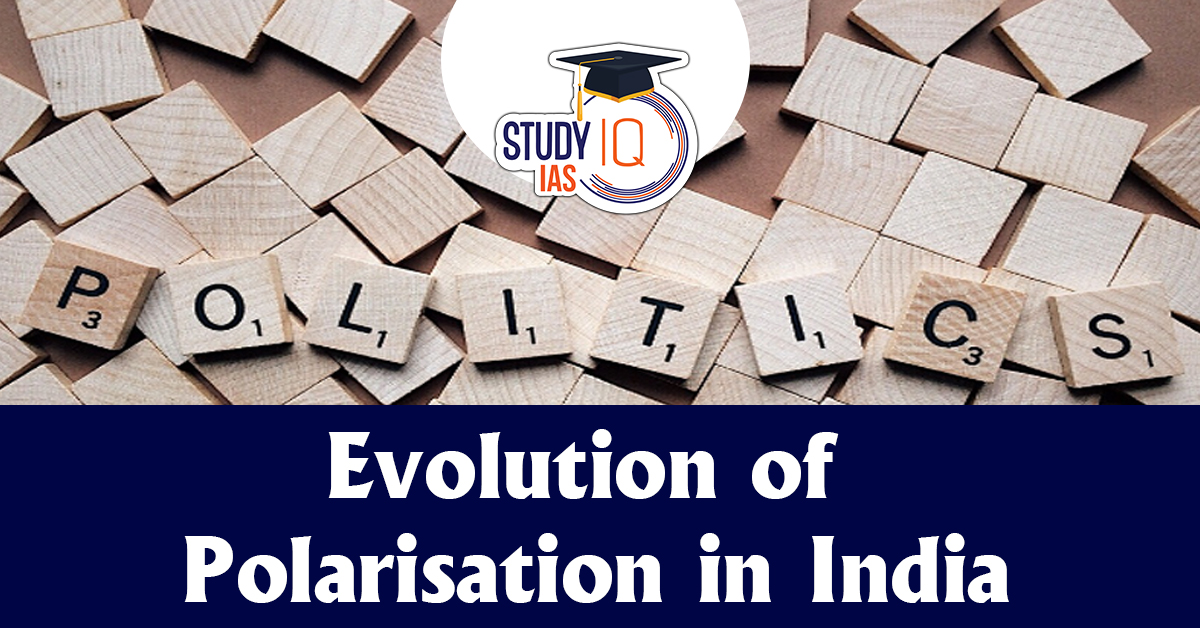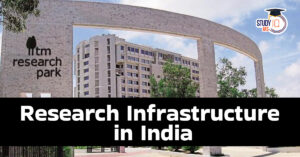Table of Contents
What is Meant by Polarisation?
It is used to describe both the division of a society into opposing groups (political polarization), and a social psychological phenomenon (group polarization) whereby people adopt more extreme positions after discussion.
What are the Causes of Polarisation?
- Identity-Group Politics: The increasing emphasis on identity-based affiliations has intensified divisions.
- g., Various groups rally around specific cultural or racial identities, leading to stronger in-group loyalty and opposition to out-groups (such as Black Lives Matter).
- Religious and Ethnic Diversity: Growing diversity can lead to decreased social trust and heightened societal conflicts.
- g., In India, religious diversity has sometimes resulted in communal violence and tensions between different ethnic groups (such as Kuki Meitei conflict in Manipur)
- Income Inequality: Rising economic disparities can foster feelings of disenfranchisement among lower-income groups.
- g., In the United States, growing wealth inequality has been linked to increased support for populist movements that often polarize political discourse.
- Social Media Platforms: Social media can create echo chambers that reinforce existing beliefs while isolating users from opposing viewpoints.
- g., Platforms like Facebook and Twitter allow users to engage primarily with like-minded individuals, which can lead to more extreme political views and a lack of exposure to differing opinions.
- Global Scenario: The absence of a unifying external threat has made internal divisions more pronounced.
- g., In many countries, including the U.S., this has led to increased focus on domestic political conflicts rather than international cooperation.
Evolution of Polarisation in India
Post-Independence Era (1947-1960s)
- Partition and Communal Tensions: The 1947 partition led to significant Hindu-Muslim violence, sowing seeds of communal distrust.
Rise of Identity Politics (1970s-1990s)
- Caste-Based Mobilization: Political parties emerged which focused on rights of marginalised communities and challenging upper-caste dominance.
- Ram Janmabhoomi Movement: Political parties gained prominence by advocating for the construction of a Ram temple in Ayodhya, intensifying Hindu-Muslim polarization.
Coalition Era and Regionalism (1990s-2000s)
- Fragmented Mandate: No single party secured a majority, leading to coalition governments and regional parties gaining influence, often promoting local identities.
- Economic Liberalization: Reforms initiated in 1991 led to economic disparities, contributing to class-based polarization.
Ascendancy of Hindu Nationalism (2010s-Present)
- Citizenship Amendment Act (CAA) Protests: The 2019 enactment of the CAA sparked nationwide protests, with critics alleging it discriminated against Muslims, deepening communal divides.
- Social Media Influence: Political parties utilise social media to propagate ideologies, sometimes exacerbating polarization through misinformation.
Recent Developments (2020s)
- Religious Violence: Incidents of communal violence have been reported, with some attributing the rise to increasing religious polarization.
- Diaspora Dynamics: Religious polarization in India has influenced Indian communities abroad, notably in the United States, leading to divisions within the diaspora.
Impacts of Polarization
- Erosion of Democratic Norms: Intense polarization can undermine democratic principles, leading to legislative gridlock and challenges in policy implementation. For instance, the U.S. Congress has experienced increased difficulty in passing legislation due to partisan divides.
- Social Fragmentation: Polarization exacerbates social divisions, eroding trust among citizens and between the public and institutions. This fragmentation can lead to the dehumanization of opposing groups, increasing the risk of political violence.
- Legislative Dysfunction: Partisan politics may slow down the legislative process, resulting in fewer laws being passed and potentially leading to the enactment of more extreme policies when legislation does occur.
- Economic and Social Welfare Decline: Polarization can harm consumer welfare and create challenges for individuals in their daily lives, affecting economic stability and social well-being.
Way Forward: Strategies to Mitigate Polarization
- Promote Inclusive Dialogue: Encouraging open conversations that include diverse perspectives can help bridge divides. Initiatives like citizens’ assemblies have shown promise in fostering understanding and generating collaborative solutions.
- Electoral Reforms: Implementing changes such as open primaries or ranked-choice voting can incentivize moderation and reduce partisan extremes. Subsidizing campaigns of moderate candidates may also encourage more centrist political representation.
- Media Literacy and Responsible Consumption: Educating citizens on identifying misinformation and promoting critical thinking can mitigate the spread of divisive content. Encouraging the consumption of diverse news sources can also reduce echo chambers.
- Strengthen Civic Education: Teaching the principles of democracy, the importance of compromise, and the value of diverse viewpoints from an early age can build a foundation for a more tolerant society.
- Encourage Cross-Party Collaboration: Facilitating bipartisan initiatives and highlighting successful cross-party efforts can demonstrate the benefits of cooperation and reduce adversarial perceptions.
- Address Underlying Socio-Economic Issues: Tackling economic disparities and social injustices that often fuel polarization can lead to a more equitable society, reducing the appeal of extremist positions.


 Gutti Koya Tribals in Post-Conflict Indi...
Gutti Koya Tribals in Post-Conflict Indi...
 Research Infrastructure in India for its...
Research Infrastructure in India for its...
 Maternal Mortality Rate in India, State ...
Maternal Mortality Rate in India, State ...





















